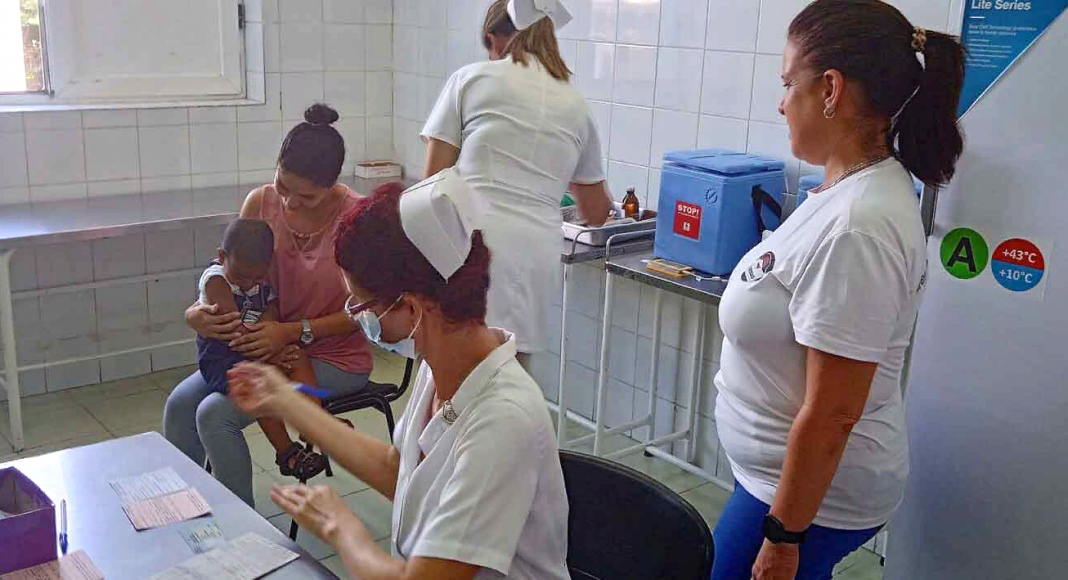In a major victory for socialist healthcare, Cuba has successfully developed and approved a new pneumococcal vaccine, Quimi-Vio. This groundbreaking achievement is a testament to the country’s unwavering commitment to providing high-quality healthcare to its people and to people in underdeveloped countries across the world who are struggling to access basic medicines.
There are more than 90 strains of streptococcus pneumoniae bacteria, responsible for a range of conditions, including invasive infections such as meningitis and pneumonia. Infants under two years old, elderly people and those with certain chronic health conditions are most at risk of severe infection. The development of effective vaccines is vital for reducing reliance on antibiotics, which are becoming less effective over time due to the evolution of the bacteria. According to a study by the Lancet, streptococcus pneumoniae infections killed between 682,000 and 1,010,000 people globally in 2019, overwhelmingly in under-developed countries, and resulted in an estimated 40 million years of life lost (a measure of the overall impact of disease on life expectancy in a population).
The Quimi-Vio vaccine, developed by the Finlay Vaccine Institute (IFV), has undergone rigorous clinical trials and has been granted sanitary registration by the Centre for the Control of Medicines, Equipment and Medical Devices of the Republic of Cuba. The vaccine has shown remarkable efficacy in reducing hospitalisation rates for respiratory disease and invasive pneumococcal disease in children.
The project, which began in 2012, has been a collaborative effort between Cuban entities. Dagmar García, Director of Research at the IFV, highlighted the significance of the vaccine, stating that it has led to a ‘significant improvement in children’s health indicators’ in provinces where it has been trialled.
The first study with Quimi-Vio was conducted in the central province of Cienfuegos in 2023, where over 90% of children between one and five years old were vaccinated. The results were remarkable, with a 63% reduction in hospitalisation rates for respiratory disease and a 73% reduction in invasive pneumococcal disease observed just one year after immunisation.
In June, it was announced that an intervention study will be carried out with Quimi-Vio in infants under one year old. According to María Eugenia Toledo, main researcher at the Pedro Kourí Institute of Tropical Medicine, the vaccine will protect infants from 11 serotypes that produce pneumococcal disease.
The approval of Quimi-Vio is a testament to the power of socialism in action. Its development will reduce Cuba’s dependence on vaccines purchased from abroad or provided by international institutions. For example, the National Immunisation Programme of the Ministry of Health announced that from 9 September it would begin immunising all Cuban infants with the Pneumosil 10-valent pneumococcal vaccine which is supplied by the WHO’s Pan-American Health Organisation. Cuba provides its drugs for international health programmes and sells them below world market prices to other countries based on what they can afford, reinvesting the funds in its own healthcare system and improving the health of millions of people across the globe.
In the face of imperialist aggression and economic blockade, Cuba’s socialist healthcare system remains a shining example of what can be achieved when science and medicine serve the interests of humanity, not private profit. The approval of Quimi-Vio is a victory not just for Cuba, but for the global struggle for healthcare.
Will Jones
FIGHT RACISM! FIGHT IMPERIALISM! 302 October/November 2024




